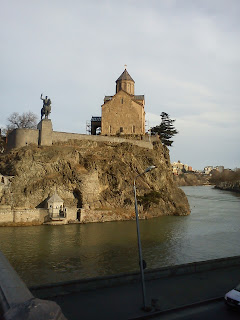International Organizations and Sustainable Tourism – WTO 3 / Dedicated to Venice
Ciao!!
Today our beloved Venice is turning 1600. So, with all my heart and my best wishes, I post today some reflections about tourism and sustainability.
The topic is still WTO. Do you remember the last post? ;-) Here if you missed it!
As an integral part of the UN system WTO has adopted Agenda 2030, focusing
on the sustainability of the tourism sector. The same can be said for the
Sustainable Development Program applied to tourism (See my post here for a quick summary).
Agenda 2030 has become a key text for sustainable development. In conjunction with the 17 goals of Millennium Development, articulated in 169 targets, it should lead to a development that reduces poverty, inequality, and that mitigates climate change, where possible by triggering the reversibility of changes already in process. They represent sets of integrated and transformative measures. Tourism requires the same transformative and adaptive processes, and it is expressly referred to in the targets of the millennium goals. In particular, tourism must have a leading role in making the development and exploitation of the sea and oceans sustainable. Moreover, it must create a labour market that guarantees workers and their rights (purposes 8, 12, and 14).
Implementing a sustainable development model in tourism means being committed to guiding principles and tourist management practices that can be flexibly included in all forms of tourism, from mass tourism to niche tourism. The principles of sustainability concern the environmental, economic and socio-cultural spheres. Therefore, sustainable tourism should be able to making optimal use of resources, helping to maintain essential ecological processes and to preserve natural heritage and biodiversity.
It should also respect the socio-cultural authenticity of the host communities, preserving both material and non-material assets, which are the result of the specific historical paths. Non-material assets such as traditional dialects and values, should be preserved not with a conservative approach, that is to say with the aim of crystallizing and isolating them. Their uniqueness does not imply that they cannot be shared and integrated into the experience of new comers. Knowledge, mutual curiosity and awareness make them a shared good and a living one: A heritage that from a small group can become part of the human and cultural life and experience of others, and which will continue to live and evolve through exchanges. Preserve the past to keep it growing and expanding through those who encounter it.
We know what unsustainable tourism did to Venice: Venexodus, with locals fleeing a city turned into an open air museum. Exorbitant rents, few services left, jaded citizens and tourism workers.
This is not the 1600y old young lady deserves...
Happy Sustainable Birthday Venice 💓
Bottoms up to the Future We Want, together



Commenti
Posta un commento